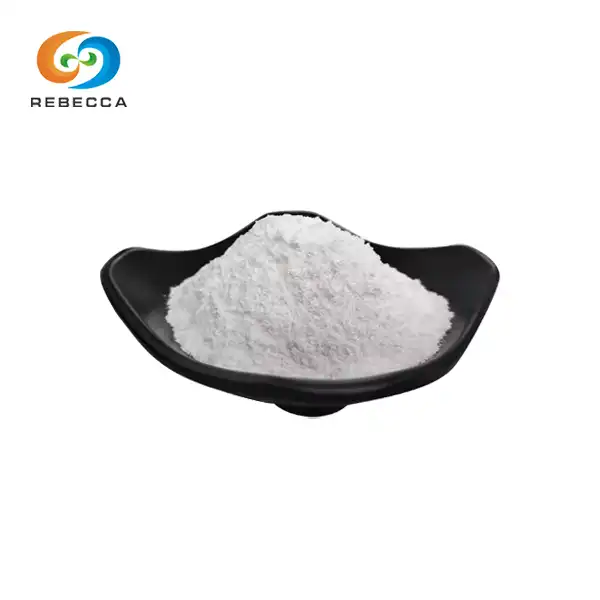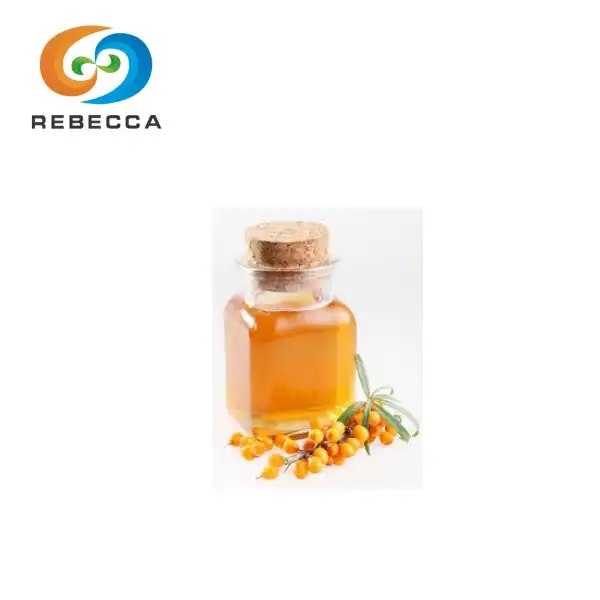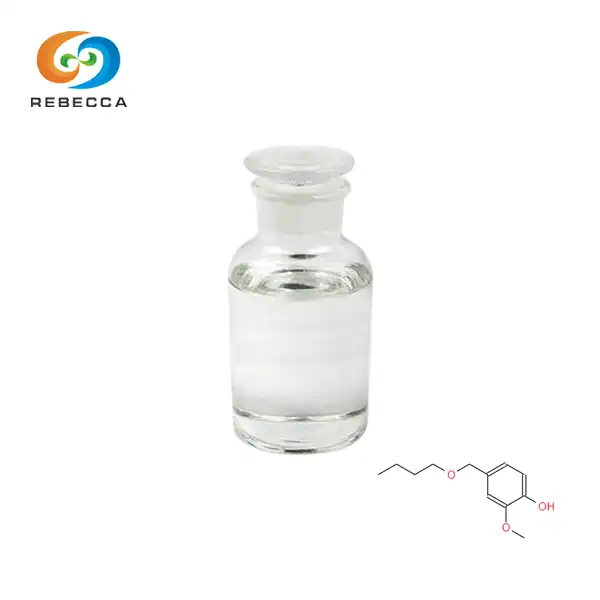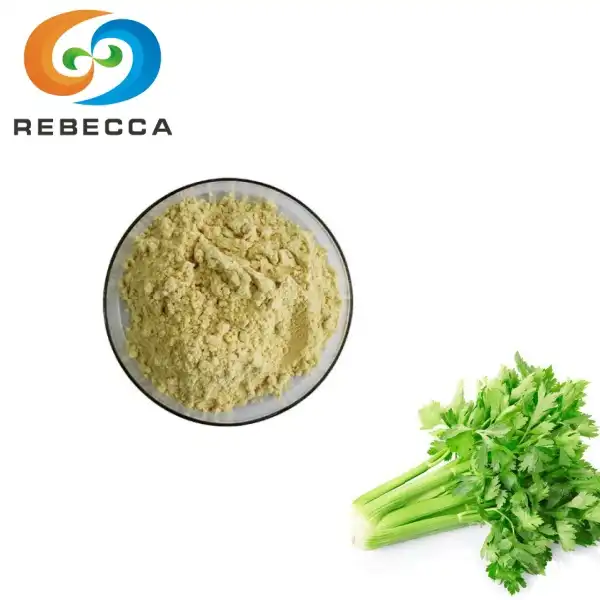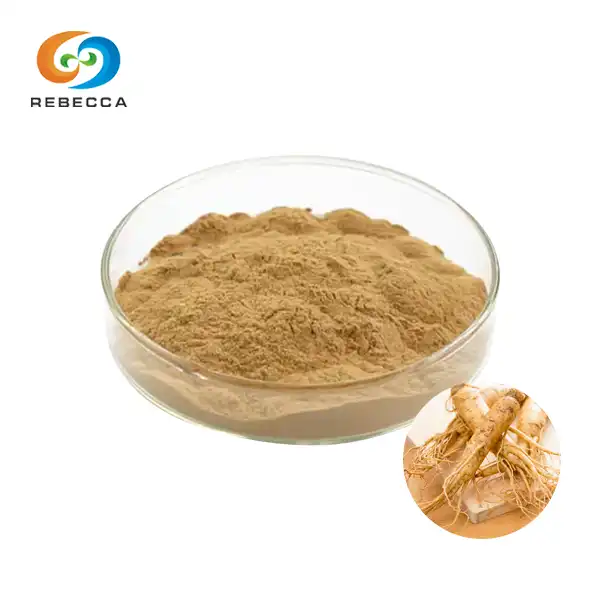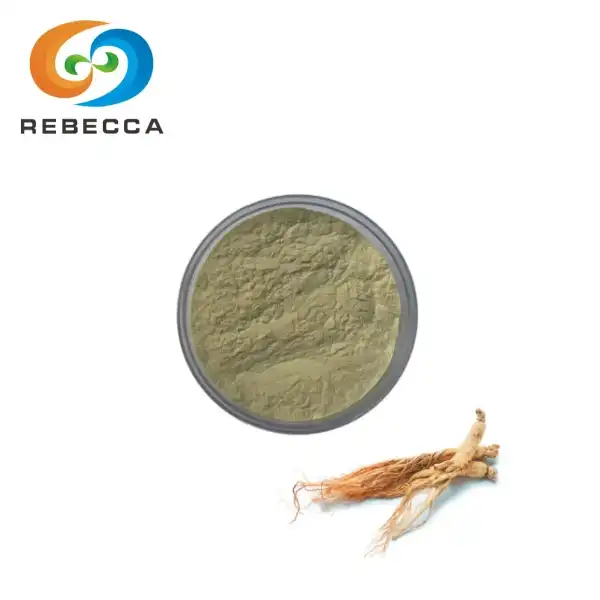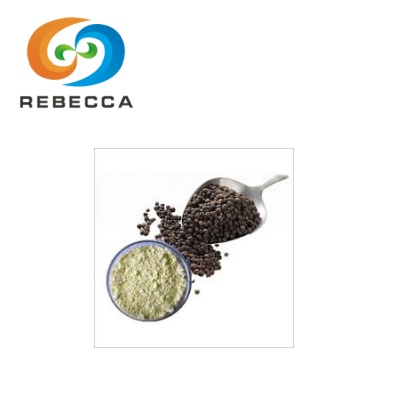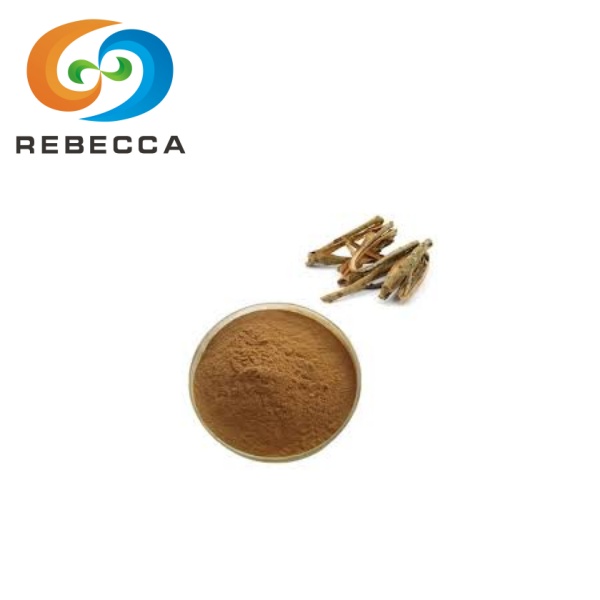What is Gastrodia Root Extract for Blood Pressure?
Among herbal extracts, Gastrodia Root Extract has gained attention for its potential blood pressure-lowering effects.Gastrodia elata, too known as Tian Ma in Chinese pharmaceutical, has been utilized for centuries to treat different sicknesses, counting cerebral pains, tipsiness, and convulsions.Recent logical inquire about has started to investigate its potential benefits for cardiovascular wellbeing, especially its impacts on blood pressure.
Hypertension, or excessive blood pressure, is a far reaching wellbeing concern influencing millions of individuals worldwide. It's frequently called the "noiseless executioner" since it ordinarily has no indications but can lead to serious wellbeing complications if cleared out untreated.According to the World Wellbeing Organization, an assessed 1.28 billion grown-ups matured 30-79 a long time around the world have hypertension, with two-thirds living in moo- and middle-income nations.
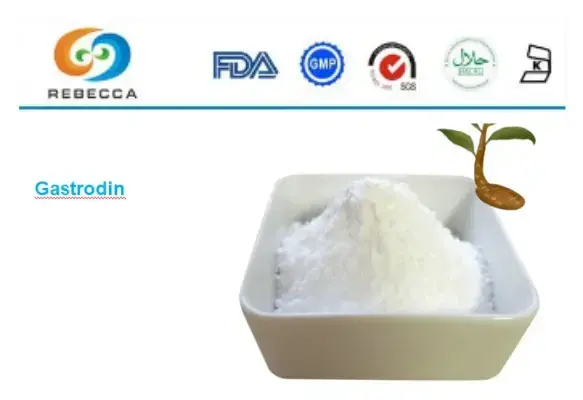
Gastrodia Root Extract And Blood Pressure
Gastrodia Root Extract has shown promising results in several studies examining its effects on blood pressure. The extract contains several bioactive compounds, including gastrodin, parishin, and vanillyl alcohol, which are believed to contribute to its therapeutic effects.
A study by Kim et al. (2013) investigated the effects of Gastrodia elata Blume on blood pressure and heart rate in spontaneously hypertensive rats. The researchers found that administration of Gastrodia elata extract significantly reduced both systolic and diastolic blood pressure in the hypertensive rats. Furthermore, the extract appeared to have a cumulative impact, with blood pressure steadily decreasing during the treatment period.
Another study by Peng et al. (2015) examined the antihypertensive effects of gastrodin, one of the main active compounds in Gastrodia Root Extract. The researchers found that gastrodin could effectively lower blood pressure in hypertensive rats. Additionally, they found that gastrodin treatment reduced oxidative stress and improved endothelial function, two factors that are essential for preserving normal blood pressure.
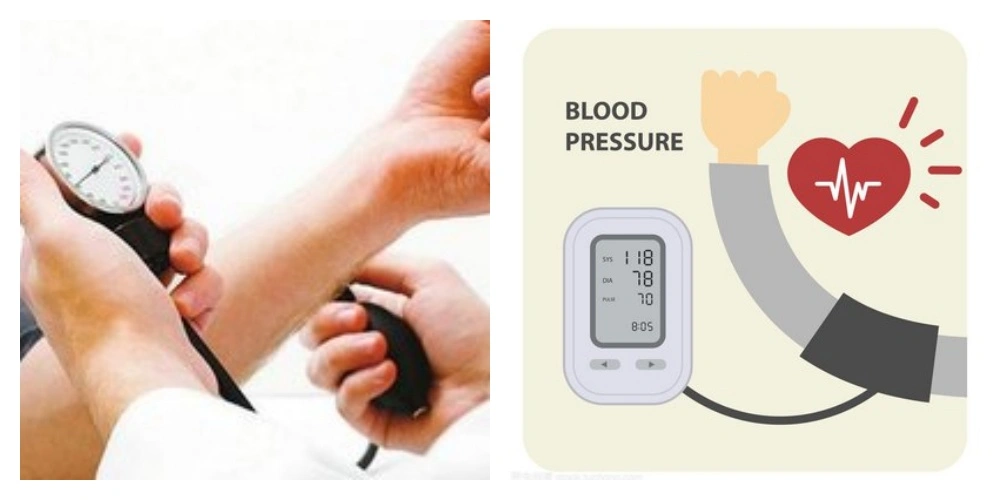
In a human study, Feng et al. (2016) investigated the effects of a Gastrodia-based formula on blood pressure in patients with hypertension. The study found that patients who received the Gastrodia-based treatment showed significant reductions in both systolic and diastolic blood pressure compared to the control group. Additionally, the treatment group experienced improvements in several markers of cardiovascular health.
These studies suggest that Gastrodia Root Extract may indeed have a beneficial effect on blood pressure. However, it's important to note that while these results are promising, more large-scale human studies are needed to fully confirm the extract's effectiveness and safety for treating hypertension.
Mechanism Of Action
The mechanisms by which Gastrodia root extract may lower blood pressure are multifaceted and not yet fully understood. However, research has identified several potential pathways through which the extract and its compounds might exert their effects:
1. Vasodilation: One of the primary ways gastrodia elata extract may lower blood pressure is through vasodilation, or the widening of blood vessels. A study by Lu et al. (2017) found that gastrodin, a key compound in the extract, could relax blood vessels by increasing the production of nitric oxide, a potent vasodilator. This widening of blood vessels reduces resistance to blood flow, thereby lowering blood pressure.
2. Anti-inflammatory effects: Chronic inflammation is closely linked to hypertension. gastrodia root extract has shown anti-inflammatory properties in several studies. For instance, Jiang et al. (2014) found that gastrodin could suppress the production of pro-inflammatory cytokines in cell studies. By reducing inflammation, particularly in blood vessel walls, the extract may help maintain healthier blood pressure levels.
3. Antioxidant activity: Oxidative stress plays a significant role in the development of hypertension. gastrodia root extract has demonstrated potent antioxidant effects in various studies. A review by Liu and Mori (2012) highlighted the extract's ability to scavenge free radicals and boost the body's natural antioxidant defenses. This antioxidant activity may help protect blood vessels from damage and maintain their flexibility, contributing to better blood pressure control.

4. Regulation of the renin-angiotensin-aldosterone system (RAAS): The RAAS is a hormone system that plays a crucial role in regulating blood pressure. Some studies suggest that gastrodia elata extract may influence this system. For example, Peng et al. (2015) found that gastrodin could reduce the activity of angiotensin-converting enzyme (ACE), a key component of the RAAS. By modulating this system, the extract may help maintain healthier blood pressure levels.
5. Effects on the nervous system: It has also demonstrated neuroprotective qualities, which may help to regulate blood pressure subtly. Since the central nervous system is essential for controlling blood pressure, the extract may help keep appropriate blood pressure management by shielding brain tissues.
These mechanisms collectively contribute to the extract's potential protective effects on the cardiovascular system. By promoting vasodilation, reducing inflammation and oxidative stress, and potentially modulating key regulatory systems, Gastrodia Root Extract may help maintain the health and function of blood vessels and the heart. This, in turn, could contribute to better blood pressure control and overall cardiovascular health.

Clinical Research And Application
While much of the research on Gastrodia Root Extract has been conducted in laboratory and animal studies, there have been some clinical studies exploring its effects in humans. These studies provide valuable insights into the potential applications and limitations of gastrodia elata extract in treating hypertension.
One notable clinical study was conducted by Feng et al. (2016), as mentioned earlier. This randomized, double-blind, placebo-controlled trial involved 90 patients with mild to moderate hypertension. The patients were divided into three groups: one receiving a high-dose Gastrodia-based formula, one receiving a low-dose formula, and a control group receiving a placebo. After 12 weeks of treatment, both groups receiving the Gastrodia-based formula showed significant reductions in blood pressure compared to the placebo group. The high-dose group showed the most substantial improvements.
Another clinical study by Chen et al. (2013) examined the effects of a Gastrodia elata and Uncaria rhynchophylla extract combination on cognitive function in patients with hypertension. While the primary focus was on cognitive function, the study also noted improvements in blood pressure among the participants receiving the herbal extract combination.
These clinical studies, while limited in number, suggest that gastrodia elata extract may have potential in the treatment of hypertension. In any case, it's vital to note that more broad, large-scale clinical trials are required to completely set up its efficacy and security.
The application prospects for gastrodia elata extract in hypertension treatment are promising. Its multi-faceted mechanisms of activity, counting vasodilation, anti-inflammatory, and antioxidant impacts, make it a charming choice for blood weight management.
Furthermore, as a characteristic item with a long history of utilize in conventional pharmaceuticals, it may offer to patients looking for elective or complementary approaches to overseeing their blood pressure.

However, there are also limitations and considerations to keep in mind:
1. Standardization: Herbal extracts can vary in their composition and potency depending on factors like growing conditions and extraction methods. Standardization of gastrodia elata extract products is crucial to ensure consistent effects.
2. Drug interactions: As with any herbal supplement, there's potential for interactions with other medications. This is particularly important for patients already taking blood pressure medications.
3. Long-term effects: More research is needed to understand the long-term effects and safety use for blood pressure management.
4. Regulatory status: The regulatory status can vary by country, which may affect its availability and use in clinical settings.
Rebecca
For researchers, healthcare professionals, and companies interested in exploring the potential of Gastrodia Root Extract for blood pressure management, Rebecca Bio-Tech offers high-quality Gastrodia Root Extract at competitive prices. Their product is manufactured to strict quality standards, ensuring consistency and purity that are crucial for both research and potential therapeutic applications.
Rebecca Bio-Tech's commitment to quality and its competitive pricing makes it an excellent partner for those looking to investigate or utilize gastrodia elata exract. Their efficient production processes allow for fast lead times, which can be particularly beneficial for research projects or product development timelines.
It's important to note that while Rebecca Bio-Tech provides the raw material, its use should be guided by current scientific understanding and, where applicable, under the supervision of qualified healthcare professionals. For those interested in learning more about Rebecca Bio-Tech's Gastrodia Root Extract or its potential applications in blood pressure research and management, the company welcomes inquiries at information@sxrebecca.com.

References
1. World Health Organization. (2021). Hypertension.
2. Kim, B. W., Koppula, S., Kim, J. W., Lim, H. W., Hwang, J. W., Kim, I. S., ... & Choi, D. K. (2013). Modulation of LPS-stimulated neuroinflammation in BV-2 microglia by Gastrodia elata: 4-hydroxybenzyl alcohol is the bioactive candidate. Journal of Ethnopharmacology, 139(2), 549-557.
3. Lu, C., Zhao, X., Li, Y., Li, Y., Yuan, C., Xu, F., ... & Shen, Y. (2017). Serum metabolomics study of Traditional Chinese medicine formula intervention to non-alcoholic fatty liver disease. Journal of Pharmaceutical and Biomedical Analysis, 146, 190-198.
4. Jiang, G., Hu, Y., Liu, L., Cai, J., Peng, C., & Li, Q. (2014). Gastrodin protects against MPP+-induced oxidative stress by up regulating heme oxygenase-1 expression through p38 MAPK/Nrf2 pathway in human dopaminergic cells. Neurochemistry International, 75, 79-88.
5. Liu, Y., & Mori, A. (2012). Neuroprotective effect of Gastrodia elata and its components. Journal of Traditional and Complementary Medicine, 2(3), 187-191.
